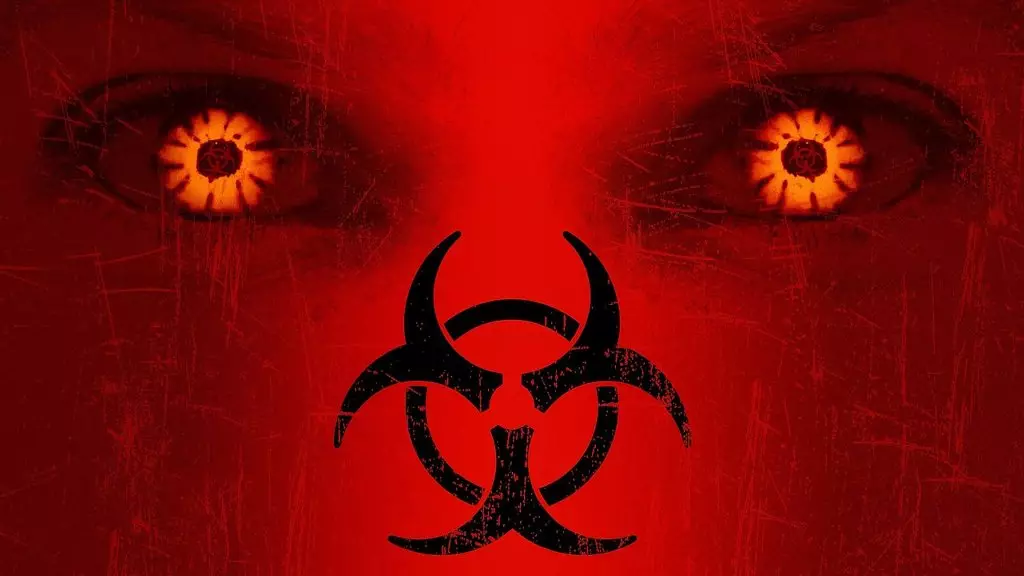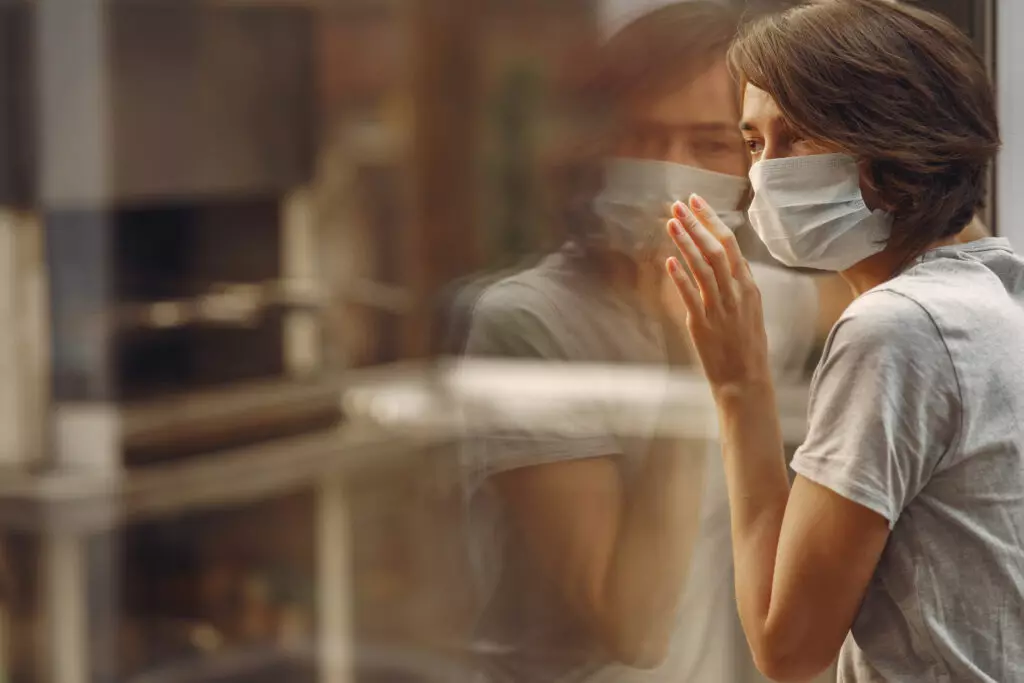
Man - thing
Sociologists call the modern Western World of consumption by society, and psychologists are the world of narcissism. And we are not only about excessive pruding, although it is also. It simply plays the role of protection against total "worthlessness", which is often referred to as the complex of inferiority. Narcissus is extremely important the opinion of others about himself, he sees himself only through the mirror of the outside world. Feeling his inner total damage, he desperately tries to resist her, "inflating" his ego in front of others, just as Peacock reveals the tail in front of the female. Narcissical Persons All the time are concerned about the question of constant assessment and depreciation of themselves and others.As a result, daffodils are doomed to endless and exhausting comparing themselves with others, they all the time compete with an invisible opponent. There is a constant ranking process: what school for my son will be the best? What doctor is the most authoritative? Where is the most fashionable restaurant? What is the coolest phone model? In which country is it now taken to relax? Such people are concerned about the practical benefit of a particular service and things, not personal preferences, but prestigiousness. These are the most eccentrics that go into debts to buy the latest iPhone model, feeding fast cooking noodles, or those traveling on a journey for the "fashionable" avatar in social networks, and not because they want to see the world. Agree, a very recognizable image in modern society. And common. Especially promoted by the development of the "estimates" system social networks that often serve as the main platform in order to face "forces".
For pathological daffodils, it is vital to have someone (one person or many), who constantly fueled them the bloated ego, infinitely admiring them. All other relationships between people for such individuals are simply blurred, they are not able to love in full understanding of this word, to take another and just enjoy life. Love Narcissa is superficial, like friendship. It exists only until another person puts Narcissal above himself. The whole world of daffodils are evaluated through the prism of its functional: you need / no need, it is useful / not useful, successful / unsuccessful, beautiful / ugly and so on.
The narcissistic society has the same characteristics: evaluates people and phenomena solely in terms of functionality, utility or harmfulness. A huge share of time and effort occupy a demonstration of anyone unnecessary, in fact, things and attempts to achieve some unknown heights. All this in the atmosphere of permanent rivalry, the endless race under the drum fraction of the incessant anxiety.
Man is not a thing
Forced insulation has largely stopped this cycle, and the rapid loss of income (and even work) in a huge number of people can consistently reduce and attracted. There is a chance that the goods and services will again come to the fore marketers again, but really necessary things. The same applies to relationships between people: in the atmosphere of general disadvantage, it is not developed by the spirit of rivalry, but mutual assistance and support. A person begins to realize himself not through the infinite inflating of his own ego, but through help to others.
Contribute to this and immediate consequences of a pandemic - disease and death, which also develop in humans a sympathetic attitude towards each other. A person is deprived of a narcissistic illusion about his own immortality (we all understand what we will die, but really take this idea only the units that, as a rule, have already encountered serious diseases in life) and uniqueness, because for the virus, one way or another are all equal. There are, of course, there are those who begin to dwell on the theories of conspiracies and accusing all the troubles of all and everyone, but I want to believe that there will be an absolute minority.
There is hope and that our society will finally get pleasure from the process (communication, work, life as such), and not from the final result, which many people are also not even achieving. Suppose, by the beginning of the pandemic, a person made some successes in his career or, for example, accumulated money. Quarantine and followed by the economic crisis are able to destroy all this overnight - only eternal values remain unbreakable: family, friendship, simple pleasure and joy of life. Therefore, after such shocks, many begin to appreciate exactly that, and not strive for eternal accumulation and consumption.
And the crisis is always hope for spiritual growth. And not only spiritual. After the Great Patriotic War, the country lay in ruins, but people were happy: won! They built the world from dust, new factories and factories were opened, the country increased production rates. People sought to have time to live and enjoy life, as it was well aware of the price - as well as human relationships. This understanding of life sometimes lacked contemporaries, and there is hope that the pandemic will fix it. However, not immediately. First, the world expect a serious economic crisis and a wave of divorces.
Standing = hole
Finding under one roof with household 24 hours a day seven days a week - a test for most marital unions. At this time, the former conflicts are exacerbated, and if the spouses have not yet learned to solve them effectively - they can be deepened up to a complete break of relations. In the "Pershest" China, by the way, there is already an increase in the number of divorces. At the same time, some family unions crisis, on the contrary, is able to strengthen, because at such times the need for each other and mutual support is exacerbated.But to achieve "long and happily" - you need to work a lot over yourself, and both. This, unfortunately, practice a few. It is not surprising that during the period of insulation, psychologists record and a wave of domestic violence. The fact that there was a crack in a relationship can become a global fault, "patch" which will not succeed. But this is also a plus, as it will break the way that it should have been completely. Such "amputation" is unpleasant, but heals human relations - and between people, and with himself. True, so as not to get again into the circulation of patients with nurses, there is needed a long and difficult work on yourself - as a rule, also with a specialist. But that is another story.
Overeating and alcoholism
These are pluses, but there are cons. We have already written about them in the article "loneliness on the network: the psychological consequences of self-insulation." After all, one of the components of quarantine is social deprivation. Numerous studies show that people who survived self-insulation not only are in stress, but also experience a lot of other unpleasant feelings: irritation, anger, boredom, decline in mood. Unfortunately, many - especially those who are predisposed - this depression can develop, intensify the overall anxiety and uncertainty in itself, which may not pass after the abolition of all restrictions.
And one of the most detrimental consequences about which studies are told - alcoholism. Many people are not able to withstand additional stress and do not know how to cope with it. The yield they see only in alcohol and other psychotropic substances. True, it is primarily about those who, again, already has a predisposition to such a type of stress removal. Probably quarantine will only strengthen this trend. And such a picture can be observed today. By the way, intensifying alcoholism in families is another "reason" for the growth of the number of cases of domestic violence.

Another unexpected consequence of quarantine - overeating, which was also spoken during the quarantine itself. And this problem can go far beyond its limits. The fact is that our body not only gets used to a certain kind of food, but also to its number. Such addictive is similar to the mechanism of exposure to narcotic. This is especially true for certain foods: for example, that contains sugar. Long and excessive use (also in combination with disadvantage of physical exertion) of harmful products can cause not only obesity, but also "chronic" addiction to them. Therefore, "abuse" may continue after quarantine.
However, the finding in isolation somehow pulls into the light of God any unresolved problems and intrapersonal conflicts. Therefore, after removal of quarantine, mental disorders and the number of visits to a psychologist in healthy people are possible. True, the services of such specialists are not suiced, therefore it is possible that many during the crisis will seek calmness not from psychologists, but at fortune-telling and charlatans who offer their services in the "similar" price.
Back to Middle Ages
By the way, about charlatans. Global quarantine quickly sent us somewhere in the XIII century. In terms of thinking. From a huge number of people - if not with the overwhelming majority - the VMY flew the fler's critical thinking, and they abruptly went into regression. Hence such a flourishing of theories of conspiracies: ideas about the mass chipping of the population and that there is no virus. Hence the initial surge of racism towards the Chinese (we wrote about this in the article "" Yellow threat ": synophobia and coronavirus") and aggression - to the first sick. So, in early April, the Russian media told stories about how Muscovites in the villages literally met with forks. This is what Komsomolskaya Pravda wrote with reference to the correspondent of the TV channel RUSSIA TODAY: "News from the Tver region. A couple of houses have bought Muscovites there for a long time. And now I came there a aunt from Moscow. On quarantine holidays. The trunk on the roof of the car is clogged with junk. Only began to unload, as the local people gathered. And they told the aunt, so that pushing back. Like, if you dangled somewhere in Italy or just in the capital, Coronavirus picked up, then it's time to get to Moscow - they will cure. And here there is nowhere to seek - the district hospital in full impotence. So we are from here, do not info us. "

People were so embalmed that when the appearance of infected in his entrance was required to "evict coronavirus" or "to score the door." Outbreaks of hatred dubbed only when the "coronavorus" began to identify in each region of the country.
So regress has occurred not only at the mental level, instantly "rejection" people to magical thinking, but also on psychological - when conflicts began to decide with the help of the forks and "door shaking".
As far as this trend can germinate in our reality after the removal of quarantine is difficult to say. Aggression is likely to leave (if, of course, the economic crisis will not fall into mass unrest), and, as we have already spoken above, its place may occupy mutual assistance. But the tendency to magical thinking can not only stay, but also blooming a buoy. Exit from regression Log and Torner, and the crisis in the economy is a fertile Niva for even greater rooting of the theories of conspiracies. After all, it will be time to analyze and comprehend: someone will do it within science and common sense, and someone - within the framework of household magic. There are concerns to believe that the latter can be the majority. And some may even develop a real paranoid nonsense.
Obsessing washing hands
Despite the fact that quarantine will make the psychological problems existing in humans, the deviation should be said separately. One of the bright manifestations of the obsessive-compulsive disorder, which the people referred to the neurosis of obsessive states, often becoming a constant washing of hands and fanatical fear of microbes and viruses. But just just the advice to wash your hands, to do not contact anyone and more often to clean the apartment today from all irons.
And they are absolutely adequate, but it is for today's situation. Our brain is arranged in such a way that it often "remembers" what is used to do, even if these actions are not only irrational, but also harm it to the owner. Therefore, neurosis of obsessive states and the fear of infection are able to develop even in those who have never been particularly inclined to this kind of psychological deviations. The most sad thing is that Russia, like the CIS, all countries of Africa, South America and partly Europe, according to experts, has a greater percentage of the population with such neurosis. The reasons for this are complex and foggy: scientists call different factors - from the level of education to the genital and age differences.
It remains only to hope for the humor and some frivolism inherent in our citizens, which can play a bad role in the containment of coronavirus, but good - in the psychological consequences of quarantine.
Source: Naked Science
